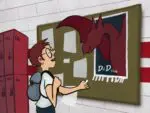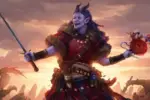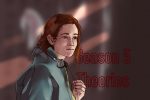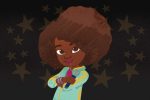Whether you have played it or not, you more than likely have heard of the game Dungeons and Dragons. D&D is one of the most popular tabletop role-playing games today. The market for role-playing has never been so booming. Nerds everywhere eagerly crowd around their tables anticipating adventure, underground mazes and terrible monsters.
With more people playing, including the occasional celebrity such as Stephen Colbert and Vin Diesel, the game is as mainstream as it has ever been. With a game so accessible to new players and so full of endless possibilities, surely the game welcomes all its players with ready character sheets and polished dice, right? Unfortunately for some players, Dungeons and Dragons is not as inclusive as it should be.
Dungeons and Dragons is a tabletop role-playing game designed by Gary Gygax and Dave Arneson. The game has been around since the mid-1970s and has been published by Wizards of the Coast since the late 1990s.
A single session of Dungeons and Dragons and most other tabletop role-playing games is entirely up to the dungeon or game master to provide. The game master guides the players along a quest that plays out in each of the player’s collaborative imagination. In this creative space, the game master acts as the storyteller, while presenting a fictional setting along with its inhabitants and challenges for the players to overcome.
The players role-play as either a pre-made character or one created by the player themself. There is usually a core rulebook, one that provides some instruction on explaining any given action a player might take. Many of these rules are based around the use of dice.
If a player wants to interact with the environment, sneak into a guarded keep or attack a foe, the player first must roll some dice to determine the outcome. Roll too low and something bad may happen, roll high and things may go in your favor.
Sounds like fun? Of course it does. Nothing is better than game night with friends. The game is a factory for fun and inside jokes, but that does not mean this game, like any other, is safe from toxicity.
Naturally, the tabletop role-playing community, like any other gaming community, usually comes with a few troublemakers. There are sticklers for the rules as written, online harassment for playing the game “wrong” and other forms of online bullying throughout Reddit and other popular sites. Similar behavior is common in many online communities and will continue to exist for as long as the internet does.
But Dungeons and Dragons specifically has a history of negative publicity. For one, it was alleged the game engaged with or otherwise promoted Satanism and suicide; the “Satanic Panic” was extremely prominent in discussions of tabletop role-playing in the 1980s. These rumors were mainly a result of the game’s shrouded secrecy. But the problems with Dungeons and Dragons do not stop with witchcraft and terrible misunderstandings.
Zak Smith has been involved with the tabletop role-playing community for roughly a decade, but has a long history of harassment and manipulation as well. Smith’s once longtime partner released a statement recounting his abuse toward her, as well as supporting claims made by others. Meanwhile, Smith is credited as a contributor to the fifth edition of Dungeons and Dragons.
One Mike Mearls, former senior manager for the Dungeons and Dragons game, recently released a statement of his own regarding Smith, but was met with outrage. Accusations came forward that Mearls received evidence of Smith’s abuse that he then handed off to Smith, while Mearls investigated the situation. As a result, this enabled Smith to silence those speaking out against him. Still, Wizards of the Coast have yet to comment or form a plan of action regarding Mike Mearls.
Critics of the game have outlined problems of discrimination and other forms of biases plaguing its core rulebook. Racism is seemingly embedded deeply into the game’s core mechanics. When a player creates a character, one of the first steps is choosing a race (elf, human, half-orc, etc.). These races typically come with race modifiers that aid with certain rolls a player might make.
But these racial modifiers push players toward specific classes (fighter, wizard, etc.) based entirely on race. In other words, the game’s rules suggest that a character’s race determines if that character is better at some things and worse at others — similar to biases that some players may experience in real life on a regular basis.
While Wizards of the Coasts have publicly addressed the issue and have assured fans that action will be taken to eliminate these underlining problems, some fans aren’t buying it. The plan of action seems vague to some and a recent statement from one designer and former team member, Orion D. Black, highlighted some key elements of the problem with the publishing company.
Their statement described how they felt they were hired to silence vocal outrage, a checkmark for diversity hire. The company continued to publicly announce their support for the Black Lives Matter movement while the company’s employee felt exploited.
“You cannot, CANNOT say Black Lives Matter when you cannot respect the Black people who you exploit at 1/3 your pay.”
Wizards of the Coast lacks the diversity it needs. It requires real diversity, passionate creators of different backgrounds, races, ethnicities, religions, genders and sexualities to give a real voice for its more marginalized players.
This does not mean all tabletop role-playing games are tangled in the same mess, although many others suffer from similar issues. There are plenty of other tabletop role-playing games that you can enjoy, many that are created by a diverse array of people. Why not give them a try? It may not only be healthy for you as a player, but also encouraging for indie tabletop role-playing designers out there.
It should also be noted that neither Smith, Mearls nor Wizards of the Coast reflect the tabletop role-playing community in its entirety. There are plenty of safe spaces in the TTRPG world where you can find kind people to play with. Playing with people you trust should always bring positive experiences. But it is important to highlight some notable problematic areas that need improving in the things we enjoy.
If you love Dungeons and Dragons, then be critical of it and its creators. Be loud and let your voice be heard. It does not mean this game cannot still be enjoyed; however, it is absolutely necessary that players point out when it’s doing a disservice to their community and allow for its newcomers to feel welcomed without fear of discrimination or misrepresentation.
Remember that change can also start at your table. When running a game, get to know your players and be kind to them. The imagination is a vulnerable place — treat other’s as if it were your own. Be considerate, and get consent if your game contains themes that some may find uncomfortable. Do your part to make your games as inclusive as possible, do not be afraid to think progressively and change the rather repetitive stereotypes of the genre you may feel uncomfortable with.
Dungeons and Dragons can give some of the most heartwarming, hilarious and positive experiences of your life. It has for my friends and I. Tabletop role-playing games bring people closer together and grants players experiences they cannot have anywhere else; all should be welcome to participate. Stay critical, spread love and roll dice.
Here are some articles that can expose you to other tabletop role-playing experiences out there:
— https://gaymingmag.com/2020/06/lgbt-tabletop-games-you-can-play-right-now/
















